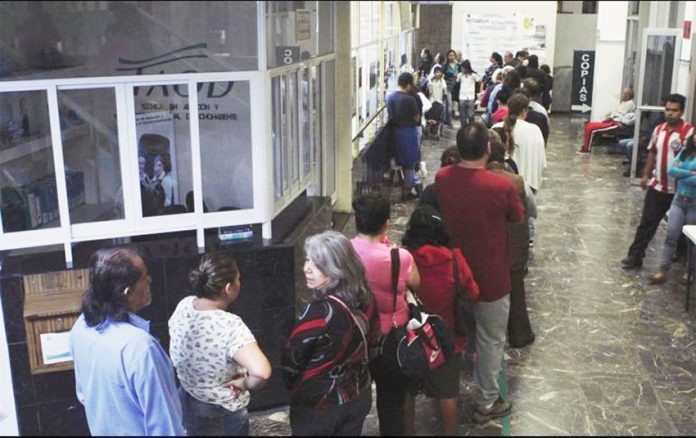Health authorities in Jalisco are stepping up protective measures against dengue fever ahead of the state’s October festivities.
Spraying is being carried out in Zapopan’s Benito Juárez auditorium, venue for the October festivals, where thousands of people will gather daily to enjoy rides, shows, concerts and other activities.
According to the State Workers’ Social Security Institute (ISSSTE), 705 civil servants had contracted dengue as of September 25, of which 15% were infected with the most dangerous strain.
Of those cases, 92 were serious and 17 were severe. The virus was detected in 18 pregnant women, one of whom died, as did the child she was carrying.
The traditional procession and mass for Zapopan’s Virgin of Guadalupe, also known as “La Generala,” will be held on October 12, when over two million people visit churches around the city.
Health brigades have been formed to prevent the spread of the disease in such large crowds.
“At least in the route in Zapopan, from the Plaza Patria to the Basilica, we have three medical assistance tents. They will have medicine for those who show up with symptoms [of dengue] and will be able to treat them,” said Zapopan Mayor Pablo Lemus.
Jalisco has the second-highest rate of dengue cases in the country, surpassed only by Veracruz, and an expert warns that with more rain and warm temperatures, those numbers will continue to rise.
“This has only just begun,” said Ezequiel Magallón, a researcher at the University of Guadalajara. “We’ve still got October to go and, if it doesn’t get cold, [we could continue to see cases of dengue] well into November.”
Recalling a similar outbreak about 10 years ago, Magallón said that a virus like dengue is cyclical, but also attributed the rise to a lack of preparation and the recent intense rains that have caused disastrous flooding and created more mosquito breeding grounds.
“The weather has favored [the mosquitoes]. We should have begun to act in March, when there wasn’t any rain. Furthermore, now there’s a second strain that has evolved and this has worsened the clinical picture.”
Magallón said the virus has evolved to survive in a more complicated environment, adapting to be able to survive inside the mosquitoes that ingest it. He added that spraying is merely palliative, as it only kill mosquitoes in the air and don’t affect breeding grounds.
With cases topping 5,000 infected people in the state, the Secretariat of Health (Salud) issued an epidemiological alert on September 25.
Sources: Milenio (sp), Informador (sp)
